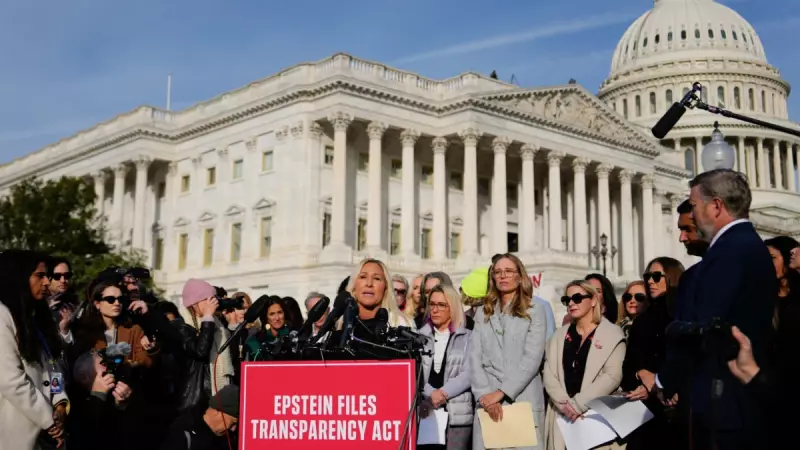
In a landmark move toward government transparency, the United States Congress has taken decisive action to force the public disclosure of documents related to the Jeffrey Epstein case. Both chambers of Congress have approved legislation that would mandate the release of long-sealed records, pushing the controversial matter back into the national spotlight.
Bipartisan Support for Transparency
The US House of Representatives and Senate demonstrated rare bipartisan unity in passing the bill that compels the release of Epstein-related documents. Lawmakers from both political parties came together to support greater public access to information about the convicted sex offender's network and activities.
The legislation specifically targets documents that have remained sealed or heavily redacted in court records for years. These files are believed to contain information about Epstein's associates, clients who used his private jet, and visitors to his notorious properties.
What the Bill Mandates
According to the passed legislation, federal agencies must release a comprehensive set of documents related to Epstein's criminal case and subsequent investigations. The bill outlines specific categories of records that must be made public, including flight logs from Epstein's private jets, often nicknamed the 'Lolita Express.'
Other documents subject to disclosure include visitor records from Epstein's multiple properties, financial transactions related to his operations, and communications between Epstein and various individuals. The release is expected to shed light on the extent of Epstein's network and potentially identify previously unknown associates.
Legal experts note that the bill includes provisions to protect victims' identities while ensuring maximum transparency about the powerful figures connected to Epstein. Some redactions will still be permitted to safeguard ongoing investigations and victim privacy.
Political Implications and Next Steps
The legislation now moves to President Donald Trump's desk for his signature. The White House has not yet indicated whether the President will sign the bill into law, though supporters argue that refusing to do so would be politically damaging.
The timing of this congressional action comes amid renewed public interest in the Epstein case following various documentaries and investigative reports. Victims' advocacy groups have praised the move as a crucial step toward justice and accountability.
Several high-profile figures from politics, business, and entertainment have been linked to Epstein over the years, though many connections remain unconfirmed due to sealed court documents. The forced disclosure could potentially reveal new information about these relationships.
International implications are also significant, as Epstein maintained properties in multiple countries and entertained guests from around the world. The document release may provide insights into his global operations and connections.
Legal analysts suggest that the released documents could lead to new investigations or revive old ones, potentially affecting individuals who previously avoided scrutiny. The transparency mandated by Congress represents one of the most significant developments in the Epstein case since his death in prison.





